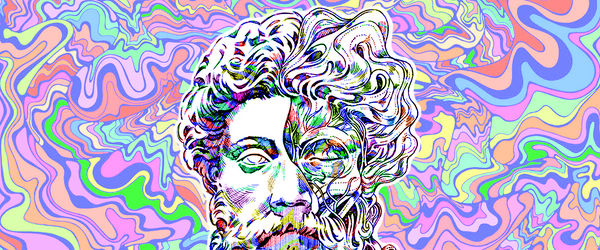Matt Karamazov • • 15 min read
The Dark Side of Empathy and the Case for Rational Compassion

People tend to think of empathy as a universally good emotion.
It’s common to hear people argue that, “If we just had more empathy, the world would be a much better place.”
I hate to break it to you, but that may not be true. Unfortunately, empathy has a dark side that is easy to overlook.
More on that in a moment.
The more I come to understand about life in general, and our human predicament in particular, the more I come to realize that there is rarely one single answer to any question you could ever ask.
Not only do brilliant experts frequently disagree with each other on matters where there IS likely to be one correct answer, the moral and ethical domain is fraught with peril, and hard and fast rules about how we should conduct ourselves during ethical crossroads in our lives are notoriously elusive.
You can read Nietzsche, Plato, Tolstoy, Sartre, Watts, Fromm, Milton, and any number of other great, incendiary thinkers whose mere last names inspire intellectual respect and humility, but you’ll still not know whether to take that job in Atlanta or stay at home and take care of your ailing mother.
It doesn’t get any easier with things that normally pass for “common sense”.
For example: Is money good or bad?
Extreme poverty is largely an unmitigated evil and one of the most critical global emergencies of our time. We could (rather swiftly) use our vast collective wealth to lift every single person on earth out of poverty and give them a chance at a decent human life. This is within our power as members of the most affluent and privileged societies the world has ever known, but personally, we need to make money first in order to be able to give it away. And then there are all of our personal desires, which money is specially capable of satisfying.
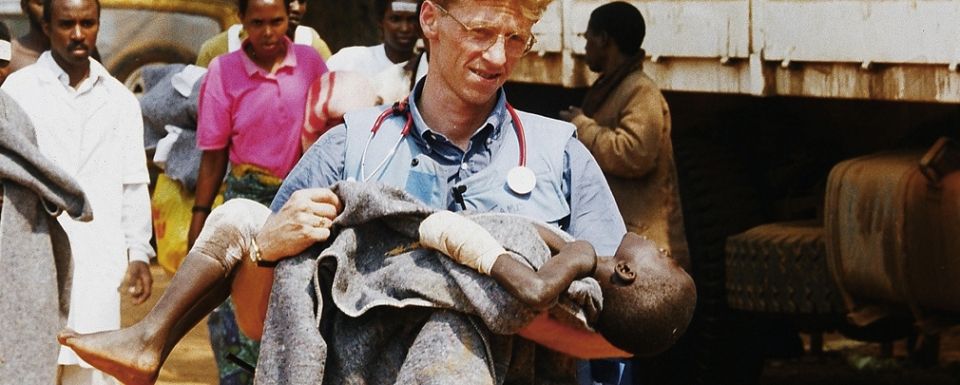
So money is good?
But superfluous wealth is (potentially) one of the quickest paths to indolence and sloth in a culture and individually. The lack of a meaningful struggle kills motivation like nothing else, and having money you don’t need is a surefire way to kill any motivation you might have to extend yourself in any sort of meaningful way and realize your own potential.
Clearly, an intellectual, rational approach to wealth is what is required in order to steer ourselves away from its potential pitfalls and create a better life for ourselves and others.
Such is the case with empathy.
Defining our terms before we begin, we may say that empathy is “the experience of understanding another person’s condition from their perspective, placing yourself in their shoes, and feeling what they are feeling.”
It’s safe to say, then, that when you empathize with someone, you want what’s best for them. I don’t deny that empathy causes people to feel for the suffering of others and inspires good people to take action in order to benefit those they care about.
But since life is complicated, and I have some space to fill, that’s not the whole story.
Empathy at its best is a force for good that is powerful beyond measure. At its worst, empathy can make us, well… stupid.THE EMPATHY STRIKES BACK
In Against Empathy, Paul Bloom discusses the horrific elementary school shooting that took place in Newtown, Connecticut, in 2012, along with what was happening in other areas of the country at around the same time.
I won’t dwell on gory, sensationalist details because I don’t believe that it’s helpful to reinforce the idea that the world is this scary, dangerous place. Of course it is, except when it isn’t. It’s these contradictions and paradoxes that we each have to live with every single day of our lives.
Anyway, here’s what happened:
On December 14th, 2012, in Newtown, Connecticut, 20-year-old Adam Lanza shot and killed 20 elementary school children and 6 adult staff members before turning the gun on himself. It was the third-deadliest mass shooting by a single person in US history, and it’s the backdrop against which we study the potentially pernicious effects of empathy.

Shortly afterwards, empathy struck hard and fast, and there were so many donations pouring in from all over the country that more volunteers had to be recruited in order to even ORGANIZE all of the donations. In fact, at one point, town officials had to ask people to stop sending gifts, because the inflow was greater than the volunteers’ capacity to distribute them to those in need.
Surely, all those who sent in donations felt great empathy for the suffering parents and surviving children. But before we congratulate empathy on a job well done, consider that within the same year, more schoolchildren were gunned down in Chicago alone than were killed in the Connecticut shooting.
Among the urban poor in Chicago and similar cities, those numbers remain tragically high, and they are likely to remain high, year after year.
And for every Newtown elementary school victim, there is a murdered urban black teenager that we’ll never hear about, a wrongfully imprisoned rights activist that we’ll never hear about, and someone dying from HIV whose name we’ll never know.
Where are all the volunteers? Where is the media coverage? Where are the overflowing warehouses full of stuffed animals and sympathy cards? Where is the empathy?
Right now, if I may be so bold as to predict your next thought, you’re probably thinking something like “Yes, but…”
I’m right there with you. I have felt what you’re feeling (see what I did there?).
You might be saying something like, “But there is so much suffering going on at once! How can I empathize with everyone?”, or “They can’t fit every single name and story into just 24 hours of news!”
I couldn’t agree more.
We SHOULD empathize with the teenage kids in Chicago who are the victims of gun violence, and we SHOULD empathize with the rural poor in India, and we SHOULD empathize with the political prisoners in Saudi Arabia, and on and on and on.
We can empathize intellectually for all of them, but we can only empathize emotionally with one person at a time. Empathy is a spotlight that has a narrow focus.In contrast, the annual victims in Chicago (and every other place where similar atrocities take place) are just numbers. They’re more like background noise, and their sheer volume presents a momentous challenge for the ‘identifiable victim effect’ to overcome.
How can we empathize with a statistical abstraction?
Since we are more likely to sympathize with those whom we are close to, empathy can have the same effect in practice as prejudice. The Connecticut shooting that Bloom cites was just another example of rich white kids receiving nationwide support and of poor black children being ignored.
Yet, again, that’s not the final answer. There are poverty-ridden white communities that are ignored, and there are excellent, heroic individuals doing hugely important work to benefit the urban poor.
That’s all beside the point. Pointing fingers is easy, not to mention counterproductive. As Jordan Peterson says, and I never tire of quoting:
“You should be suspicious of anyone who wants to change others without first changing themselves. Evil is within YOU, because YOU’RE not all you could be. The line between good and evil runs directly down the middle of the human heart.”If we want to be better off, and to become good, moral people, we don’t need empathy. Sometimes, we are better people when we suppress our empathetic feelings, and sometimes, we should use our heads rather than our hearts.
MORAL DECISION-MAKING
In order to rule for or against empathy, we have to rationally conclude whether or not it makes the world better.
This requires conscious thought, and not recourse to instinctual reactions about the desirability of fellow-feeling and universal goodwill and brotherhood. Those are all fine things, until they’re not.
Where empathy and morality are concerned, the effects matter. The natural outgrowth of this idea is that an act which helps one person in the here and now can lead to worse consequences in the future. It’s hard not to be stupid, and when taking the consequentialist view of empathy into consideration, it’s clear that empathy can make us stupid.
In The Life You Can Save, Peter Singer argues that, morally, we should give right up to the point where we would be sacrificing something critical that we couldn’t live without. Thinking in these terms, we can see that we don’t have to give up anything morally equivalent to the welfare of those we care about. We don’t have to starve our own children so that children in other countries can eat; however, we might plausibly be required to forgo buying our teenage daughter a car for her birthday when it means that instead we can send 30 young girls to school in a developing country.
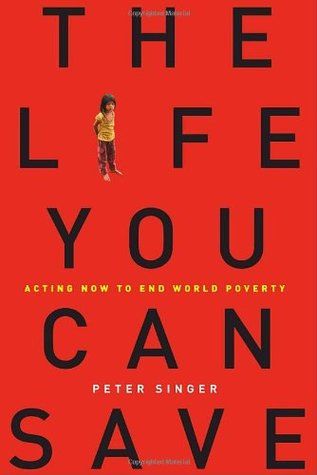
What Singer is saying here is that we don’t have to sacrifice anything that would make the lives of the people we love intolerable. We just have to think a little bit about the effects of our actions, and consciously decide how much we need to own or possess in order to be happy and to live meaningful lives.
If I had a teenage daughter (and years of working in bars and nightclubs has made me grateful that I don’t), there is no doubt that I would feel great empathy for her, and that I’d want to buy her the nicest car that I could possibly and reasonably afford. But knowing that millions of children under the age of 5 will STARVE TO DEATH without doing anything to help them would be morally reprehensible in this case.
Does the empathy that I have for my teenage daughter, resulting in me buying her a car, make the world better?
If, instead, she had to take the bus and 100 people at risk for malaria received mosquito nets, wouldn’t that be better for the future of humanity?
Obviously, there are objections. One can’t know if any of those 100 people might grow up and commit some horrible atrocity. But, not giving to good causes because of potential long-tail consequences is mainly just an excuse to not do anything at all.
OK…but isn’t there something incredibly cold and inhuman about reasoning impersonally about the effects of our actions? Shouldn’t we be guided by our hearts and trust that our empathetic feelings will lead us to the correct course of action?
The problem is often reasoning poorly; not with reasoning itself. Empathy can help us do good in the moment, but without consideration for the long-term effects of our actions, it is an imperfect offering.
Quite simply: Feeling what other people are feeling does not necessarily contribute to good moral decisions, and we don’t need to empathize with a specific person in order to want to improve conditions generally for many.In Against Empathy, Paul Bloom also points out that anybody who defends empathy over reason, or any other moral sentiment, is doing so by using reason. So there!
WHAT’S RIGHT WITH EMPATHY
It should be clear that I’m not “against empathy”; rather, I’m against dumb ethical decisions.
Throughout the evolutionary process, empathy was infinitely adaptive. I don’t think that we’re falling into the naturalistic fallacy by arguing that empathy served us very well. We are here right now, so empathy must have done something right, mainly by binding groups together and motivating us to act for the greater good of our communities. If we find value in the lives that we are leading at this moment, then empathy should be applauded for its role in providing for this state of affairs, as opposed to some other state within which we didn’t exist.
Furthermore, I don’t claim that anyone could be reasonably expected to care more about other people’s children than their own. An example will clearly show what I mean.
If your child and another child were drowning in a pool and you could only save one of them, you would likely save your own, and there’s nothing wrong with that. I don’t believe that empathy is steering you wrong if it causes you to intervene to save your own child, rather than a child to whom you are unrelated.
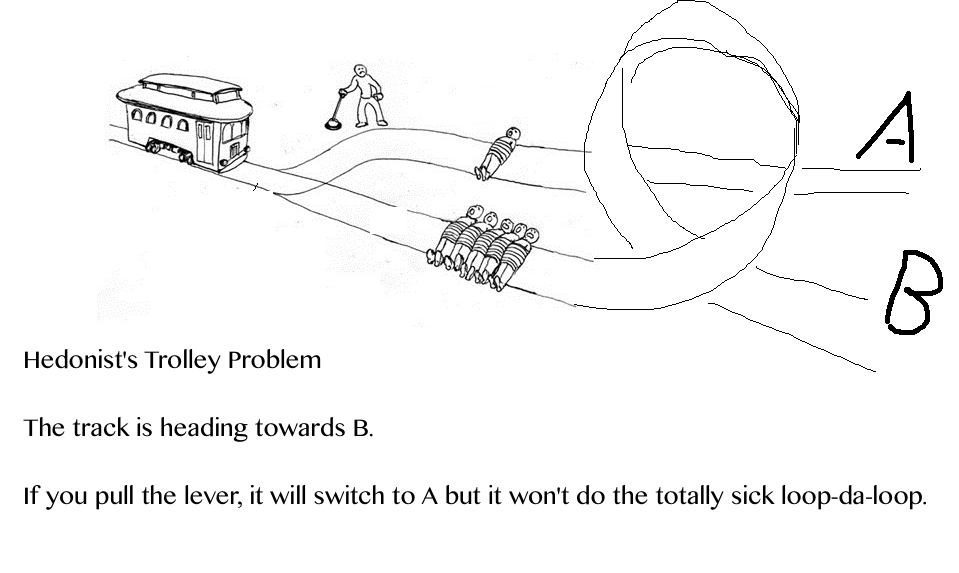
Furthermore, caring only about yourself is profoundly un-biological, because you can never reproduce your own genes alone.
In Richard Dawkins terms, the ‘selfish gene’ still motivates altruistic behavior because it is still our individual genes that can be found within others, and thus it is in your best interests to help them persist. Empathy can be said to cause our organism to care about related organisms in such a way that fosters their survival over time. Again, there’s probably nothing wrong with this, especially if you subscribe to the Leibnitzian notion that this is the best of all possible worlds, or even if you find some demonstrable value to your life at this moment.
So, empathy was and is critical for survival, regardless of its potential for supporting myopic under-reactions when confronted with problems of the world outside our own narrow concerns. I’m thinking here about our pathological tendency to undervalue the lives of human beings that don’t share our cultural worldviews or skin color.
CONCLUSION
Occasionally you’ll hear people say that giving to others and doing things for other people can’t possibly be selfless because it makes us feel good too, and that’s why we do it.
I resisted this claim for years without having a logical argument that I could use to refute it. I seriously questioned the existence of genuinely selfless acts, and wondered if it actually were possible that nothing we could do for others could be genuinely selfless.
If it makes us feel good to help others, isn’t it possible that we don’t really care about them at all and instead are just interested in making ourselves feel good? Or worse, looking good in the eyes of others?
More recently, I came to the opinion that this was a meaningless question.
Instead, we might reasonably ask: If we help others because it makes us feel good, then what is it that’s already within us that causes helping others to make us feel good?
I believe that the existence of empathy is a big part of the reason that helping others is within our self-interest as well. It’s not that we should never empathize for anyone, or that we should always empathize with everyone; it’s that
empathy can be an excellent servant, but empathy should never be our master.In the final analysis, it’s not that empathy is always a bad thing; it’s that its moral negatives outweigh its positives. We tend to ignore the colossal suffering of others in order to provide more limited support to the people we care about. Reasoning correctly, we can imagine a better way.
So, once more, is empathy good or bad?If someone was going to do something good for many people, but empathy made them focus only on a lesser good for those closest to them, then empathy could be said to be bad.
But if someone wasn’t going to do anything good at all, and empathy caused them to do something good for someone, regardless of who it was, then empathy is a good thing.
We may be too quick to credit empathy with much of the good that we see in the world. You can be motivated to help others without empathy, and empathy isn’t the emotional push that many people seem to believe that it needs to be.
Like raising children, we have to do things for others that may be uncomfortable in the short-term, in order to bring about long term improvements in well-being.
In order to make people uncomfortable in the short term for their own good, you can’t empathize with their short-term feelings and wishes.Do you give in and let your best friend kill himself with drugs and alcohol because that will make him happy (less miserable) in the short term? Or do you cause him to suffer agonizing withdrawal symptoms so that your friendship will last?
These are questions that empathy struggles to answer.
ANOTHER CONCLUSION
Did you really expect just ONE conclusion?
Returning to the thoughts which opened this discussion, there is rarely one single answer to any of the major questions with which life confronts us.
It’s easy to rebuff empathy and instead decide to dedicate your efforts to a cold, calculating analysis of the costs and benefits of every ethical decision you’ll ever make in your life. To completely reject empathy and instead insist upon rationally evaluating the long-tail consequences of your actions and resist developing feelings for one group over another.
I don’t have any conclusive answers, but I can’t help feeling that maybe we have to empathize with someone specific in order to know what it feels like to care for everyone.
I’ve lived in countries where there are people literally starving to death in the streets, and, more recently, I’ve held my dad’s hand as he was preparing for heart surgery. I am also a committed fundraiser for Doctors Without Borders, and have had ‘co-workers’ get killed when the hospitals they were working in got bombed by ‘accident’.

A major breakthrough in my thinking came about when I realized that the people who have lost and will lose family members due to preventable causes such as poverty, famine, war, and disease probably feel the same way about their family members as I feel about my dad.
At the time of writing, my dad’s surgery will most likely be later today.
I live in Canada, and our health-care system is such that he has access to some of the best doctors in the world and the most modern facilities that patients will find anywhere. I don’t know how the surgery will turn out, but I know that he will get the best care available, that he will be cared for by people like myself and the rest of our family, and that he has been given the best possible chance to survive.
Of course, billions are not so lucky.
I can’t stop myself from thinking about the untold number who lack access to adequate medical care, who will never receive an education, who live in constant fear that a dreaded enemy is on their way over the next hill to murder them without so much as a second thought.
Perhaps worse, there are a multitude who don’t know whether the people they care about are alive or dead.
There is something within me that makes me care about these people almost as much as I care about my own dad. That can’t be a bad thing in itself, but it can lead to perverse consequences when our empathetic feelings cause us to become short-sighted and uninformed.
We can make wrong ethical decisions that turn out worse than the decisions we would have made if we had reasoned correctly about our initial empathetic feelings.If you’re still holding onto empathy as a force for good, I have some advice.
Educate yourself. Read all the best books. You’re not going to help anybody if you’re stupid. Research the current state of humanitarianism and then go to work where the best work is already being done. There are massively effective organizations doing incredible work all over the world and the entire Effective Altruism movement is dedicated to supporting them. Sometimes, you’ll even find ways to improve on what’s already being done, and if you can do that, I and many others will be grateful to you.
I followed the ambulance from the house all the way to the emergency room, and waited for any possible news concerning my dad’s condition, and what lay in store. The paramedics were comforting and knowledgeable, the nurses actually cared, the doctor was patient and even asked ME if I had any questions. I left the hospital with the absolute conviction that doctors are heroes, that nurses are heroes, that paramedics are heroes, that police officers are heroes…and that maybe I can be a hero to someone someday, or to many people, as well.
The same is true for you. When empathy and rationality both inform your heroism, the positive effects you can have on the world are tremendous.
You can use the strong feelings that you have for others and you can combine it with the knowledge of how to most effectively help them.
The world needs more smart people doing brave things, and less mindlessly empathic do-gooders making the problems of the world worse.There is nothing more important, nothing more meaningful, than using what YOU HAVE, the knowledge and motivation that YOU POSSESS, to make powerful changes where you know they need to be made.
I can’t imagine any life more worthwhile than one in which you balance your own happiness with the vital needs of others, and fallible empathy, combined with fallible reason, is crucial to being able to make that distinction.
Like Jordan Peterson said, evil is not ‘out there’. Evil is within YOU, because YOU’RE not all you could be.
I don’t know if I’ve been able to provide you with any answers, but I can leave you with some pretty damn good advice with respect to a possible next step.
If you really want to help someone, educate yourself first, do the intellectual roadwork necessary for achieving true insight, then go out and find someone who believes that they’re all alone in the world and convince them that they’re not.
All the best,
Matt Karamazov
Against Empathy by Paul Bloom
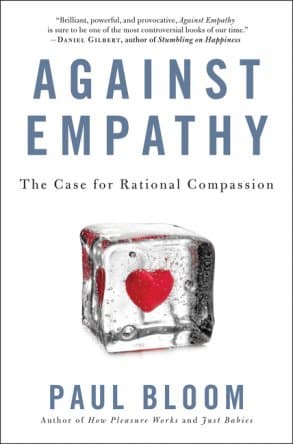
Empathy isn’t always all it’s cracked up to be. Sometimes, it leads us to make foolish decisions that end up doing more harm than good, but it doesn’t have to. Paul Bloom explains how that, if we use our heads as well as our hearts, we can make effective, ethical decisions that lead to the greatest good.


![Seneca’s Groundless Fears: 11 Stoic Principles for Overcoming Panic [Video]](/content/images/size/w600/wp-content/uploads/2020/04/seneca.png)






